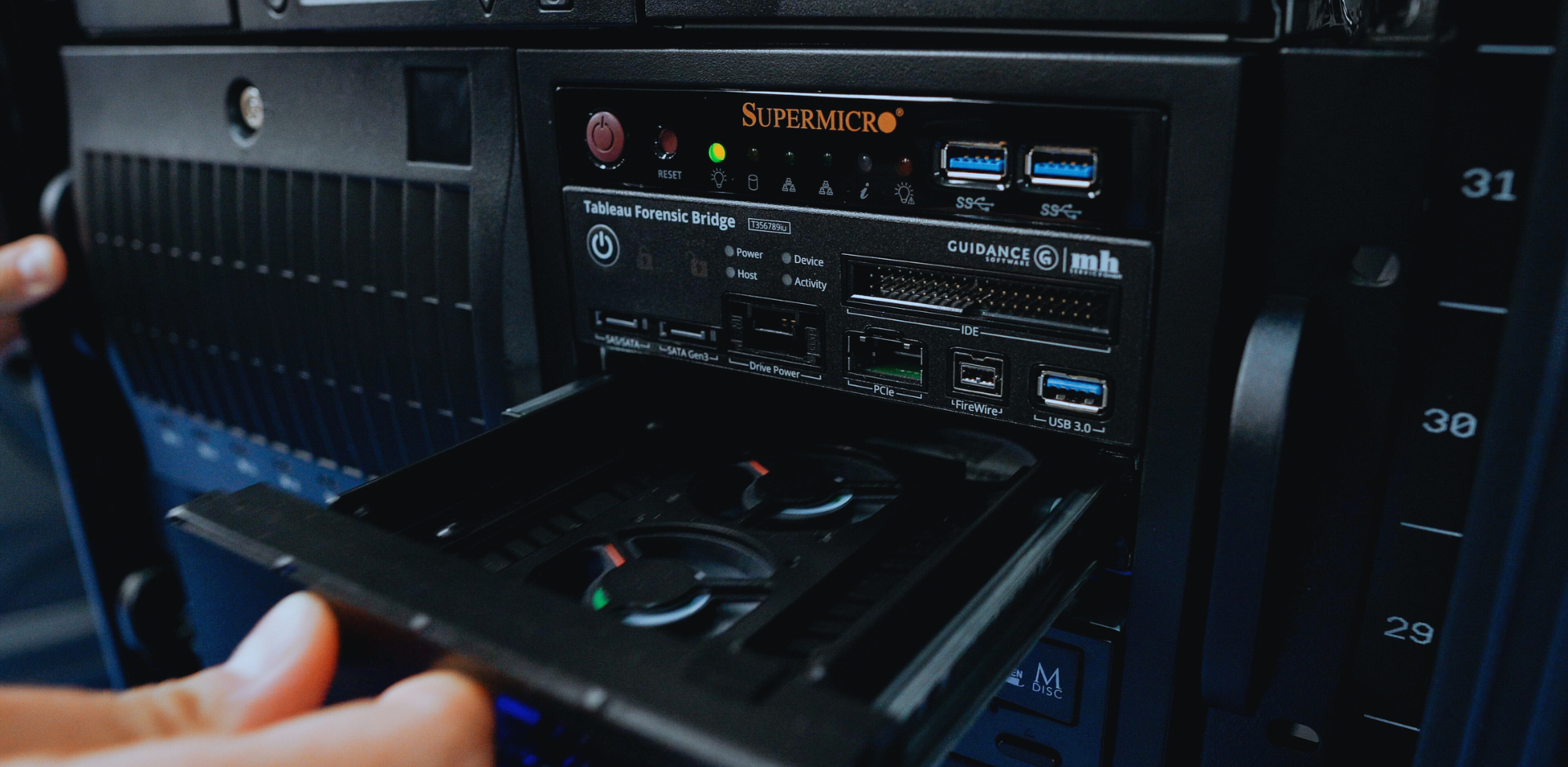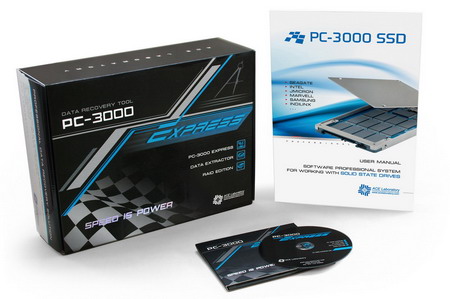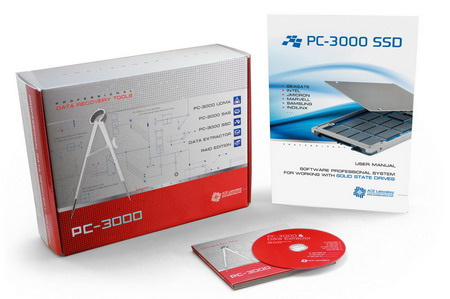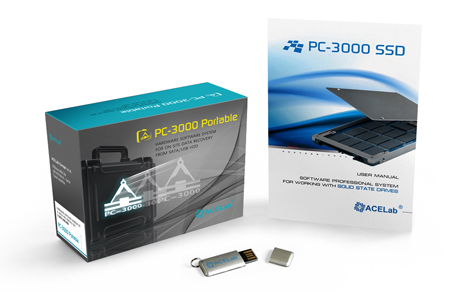PRODUCTS
Solve your cases faster with the fitting tools!

PC-3000-SSD
The PC-3000 SSD Software System operates in tandem with one of the three up-to-date hardware platforms – PC-3000 Express, PC-3000 UDMA, or PC-3000 Portable – and it is intended for SSD repair and diagnosis and for data recovery from SSDs with SATA, PATA, mSATA, and M.2 (NGFF) interfaces and the capacity from 64 GB to 1 Tb produced by different manufacturers, such as OCZ, Corsair, Crucial, RunCore, A-DATA, G.Skill, Micron, Plextor, Intel, Samsung, Seagate, Kingston and others.
The PC-3000 SSD contains a set of specialized utilities for working with solid-state drives. This set includes the Universal Utility for diagnosing any SSD based on the ATA-8 specification (both currently existing models and those that will be manufactured in future) and the Active Utilities (Special Utilities) intended for working with a particular drive model in factory mode. It enables to deeply diagnose SSDs, to perform service operations, to re-write the drive's microcode, to get direct access to memory chips, to carry out low-level formatting blocking the damaged cells and placing their addresses into the defect table, and to perform many other useful operations.
The PC-3000 SSD is started from the main window of the PC-3000 Express, UDMA, or Portable System by means of clicking a button on the desktop panel.

PC-3000 SSD has the following functions for data recovery:
- verify and restore the SSD's service information
- read and write the content of the SSD's ROM
- load the microcode into the drives's RAM
- emulate the translator operation in order to get access to user data
- view the password and reset the password that was earlier set on an SSD
- turn off background processes in an SSD to prevent data damage
- provide direct access to the content of memory chips (it makes unsoldering unnecessary)
- work with the Data Extractor
PC-3000 SSD has the following functions for SSD repair (to recover normal operation):
- diagnose an SSD in factory mode
- verify and restore the SSD's service information
- read and write the content of the SSD's ROM
- load the microcode into the drives's RAM
- view the logs of hidden defects (P-page, G-page)
- perform low-level formatting to hide the discovered defects
- change the configuration and identification parameters
- reset the logs and S.M.A.R.T. parameters
- search for the damaged memory chips
The list of Active Utilities of the PC-3000 SSD System is expanded as soon as new SSD models are studied, and it is a continuous process. Those utilities that are currently available allow you to successfully recover data from all contemporary solid-state drives and to resolve the majority of wide-spread SSD problems. It is planned to add special adapters and connectors that will allow to use technological interfaces to diagnose and repair drives.
The PC-3000 SSD delivery package
- the System's software, the resource database – 1 DVD
- User manual – 1 book
Delivery package options for the System:
The PC-3000 SSD System can be operated via the PC-3000 Express, PC-3000 UDMA, or PC-3000 Portable controllers,so there are several delivery options:

In a package with the PC-3000 Express

In a package with the PC-3000 UDMA

In a package with the PC-3000 Portable
Quick Online Access to the PC-3000 SSD
There is no need when the PC-3000 SSD will be shipped when you have an urgent SSD recovery case from your important customer.
The PC-3000 SSD software can be available immediately at the day of the payment.
Since the payment is done you will find the following in the Customer Update Box:
- the System's software
- the resource database
- User manual
System's functionality:
- repair functions
- data recovery functions
- service and diagnostic functions
Compatibility with hardware:
- PC-3000 Express
- PC-3000 UDMA-E - PC-3000 Portable
Compatibility with software:
- compatible with Data Extractor Express (RAID Edition)
- compatible with Data Extractor UDMA (RAID Edition)
- compatible with Data Extractor Portable
SSD operation modes:
- UDMA, PIO, Terminal
Supported interfaces:
- PATA,
- SATA,
- mSATA (if there is an adapter),
- M.2 (NGFF) (if there is an adapter).
Working techniques:
- standard technological modes for SSD
- the System's proprietary advanced technological modes
- the possibility of working with dumps in the manual mode
Contact persons
Our experts are happy to help you.

Dimitri Kusnezov
Hardware Sales, CTO
E-MAIL: dimitri.kusnezov@mh-service.de
PHONE: +49 (0) 7275 40444-41
